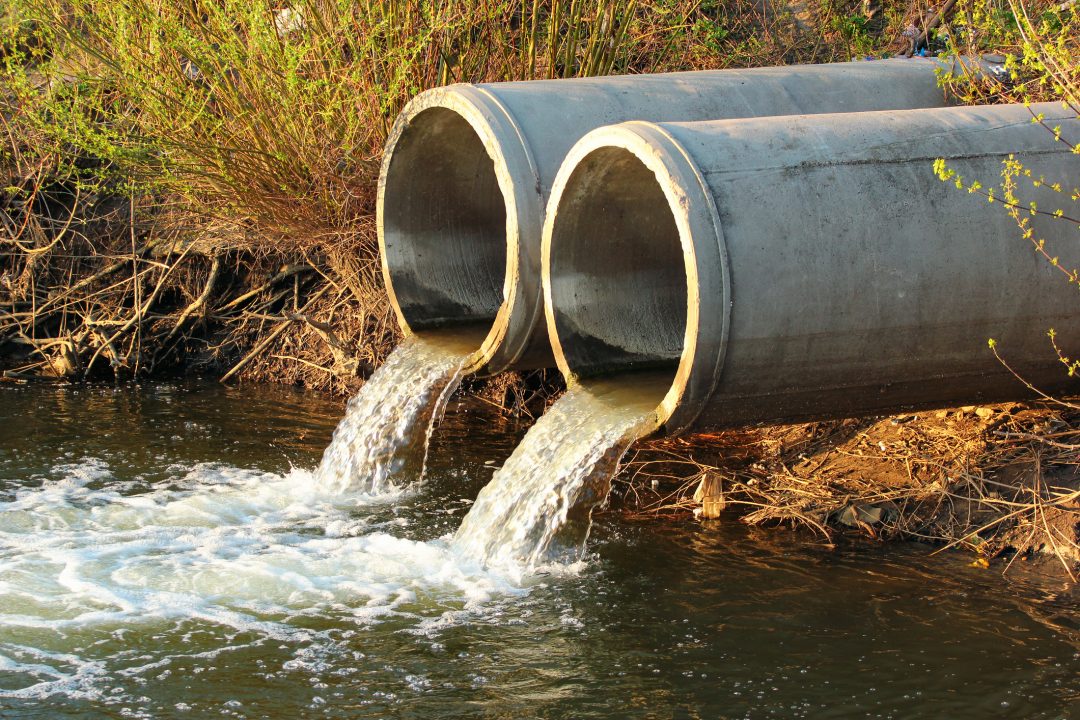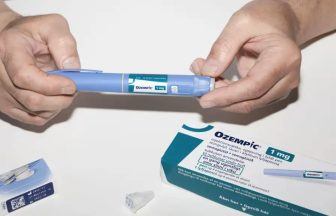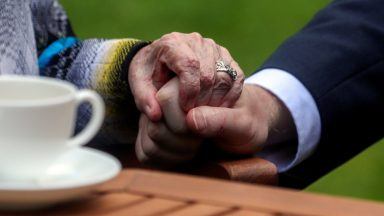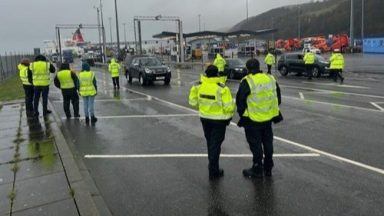Sewage was discharged into seas around Scotland for more than 113,000 hours last year, according to analysis carried out by a leading ocean charity.
The Marine Conservation Society (MCS) believes the figure is likely to be a tiny fraction of the true amount as less than 4% of the country’s storm overflows – 123 out of a total of 3,617 – are currently monitored for spills.
The charity said its research, using data from Scottish Water and the Scottish Environment Protection Agency (Sepa), also shows untreated sewage was released into waters within 1km of areas designated for marine nature conservation for more than 20,000 hours last year.
It is understood sewage pollution can have significant impacts on wildlife, from neurological, hormone and immune problems, to affecting sensitive habitats like seagrass and maerl beds, which provide the foundation of many marine ecosystems.
In addition, the MCS found less than 2% of storm overflows within the same distance of designated bathing waters – just four out of 177 – are monitored, yet they alone released sewage for more than 600 hours in 2022.
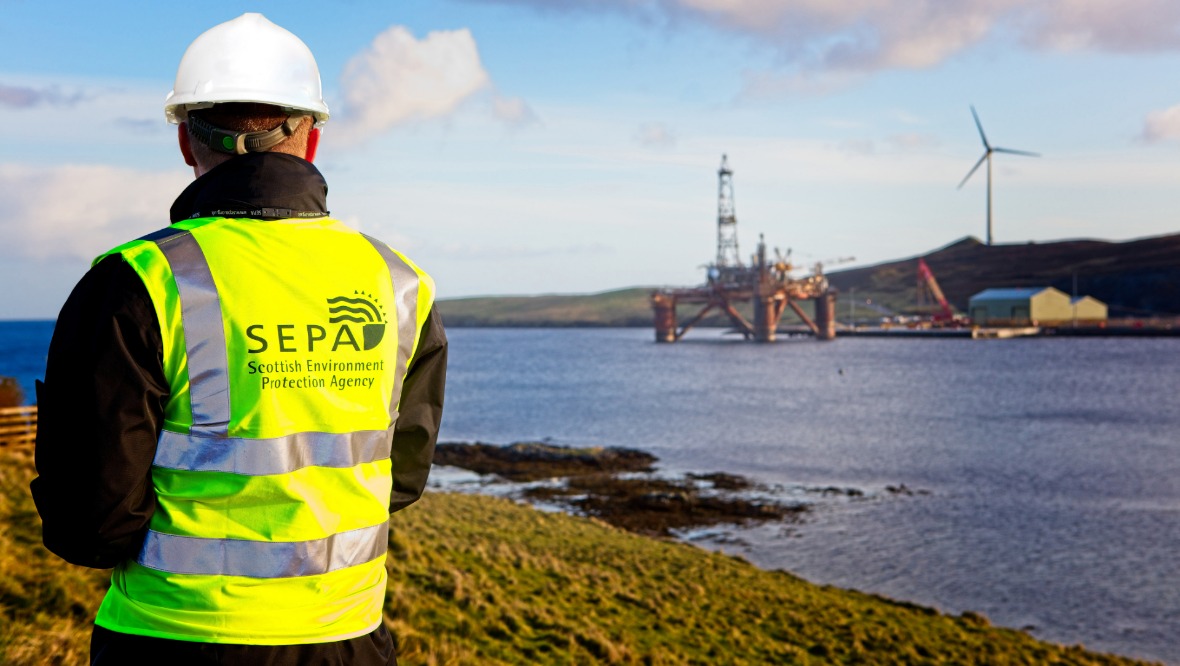 LDRS
LDRSThe charity is now calling on the Scottish Government to task Scottish Water to monitor and report on all discharges from storm overflows by 2026 at the latest, and set progressive spill reduction targets to tackle the problem.
It is also asking people to email their local MSPs to highlight the issue and lobby them to bring about change.
Laura Foster, head of clean seas at the MSC, said: “All we have is a tiny snapshot of data for storm overflows in Scotland, but from what we can see, they paint a terrible picture of the situation.
“For thousands of hours each year, untreated sewage is being released straight into Scotland’s seas. This includes into designated bathing sites as well as marine protected areas which have been specifically recognised for their environmental importance.
“The Scottish Government needs to set spill reduction targets to tackle sewage pollution, for the sake of marine life, people and planet.”
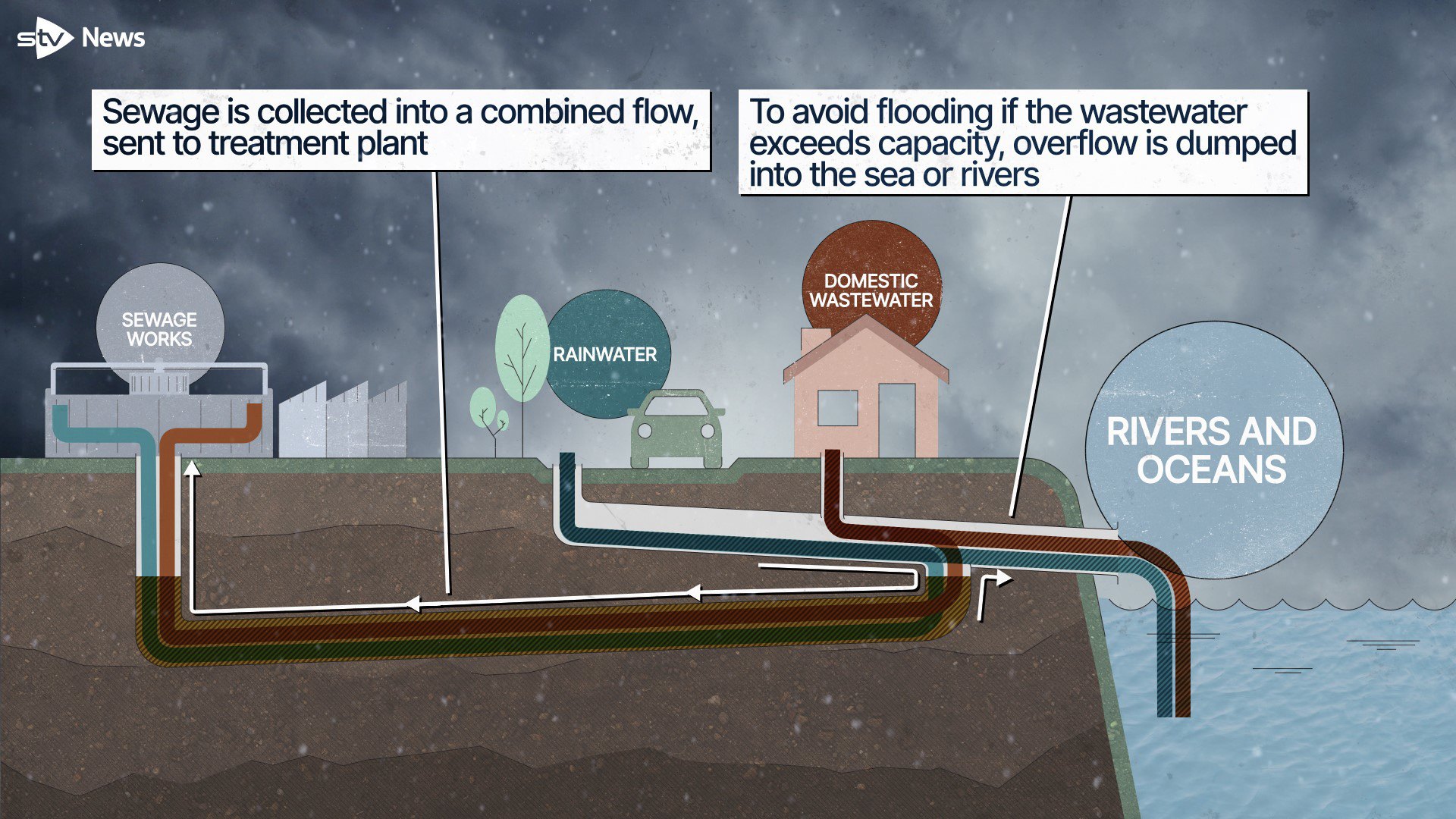 STV News
STV NewsThe new analysis come a year after volunteers from the charity recorded and removed more than 35,000 sewage-related items from Scottish beaches.
Catherine Gemmell, Scotland conservation officer at the MCS, said: “We know sewage dumping in Scotland is bad by the amount of sewage-related litter that our volunteers find on beaches in certain areas across Scotland.
“But we still don’t know quite how bad it is, given that only 3.4% of sewage overflows are monitored.
“By setting progressive targets to reduce sewage pollution, and ensuring they are met by increased monitoring and the required enforcement, the Scottish Government can help protect our seas and the life within it.”
A Scottish Water spokesperson insisted the majority of Scotland’s waterways are among the best quality in Europe, and said it is incorrect to term all discharges from storm overflows as sewage spills.
“It’s not true to call spills from the waste water network sewage spills,” the spokesperson said. “The toilet sewage element of the water that spills is less than 1% of the total volume.
“What is spilled is largely rain water. But the overflows that spill are needed so that water doesn’t back up into homes, streets, business and communities.
“These overflows represent huge volumes of rainwater being safely transferred away from homes and businesses and back safely to the environment to minimise the impacts of extreme weather.”
The Scottish Government has been asked for comment.
Follow STV News on WhatsApp
Scan the QR code on your mobile device for all the latest news from around the country


